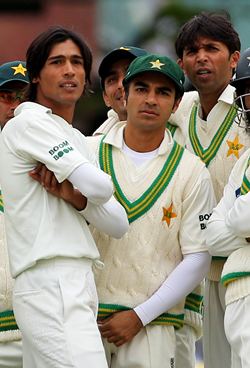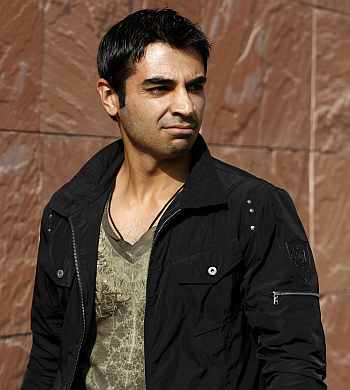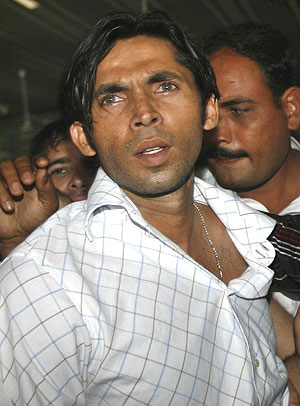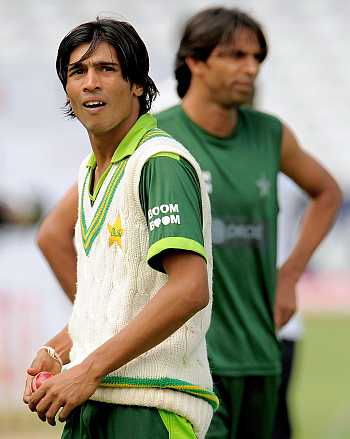 | « Back to article | Print this article |
A year on, spot-fixing scourge haunts Pakistan cricket
A year has gone by. And Pakistan cricket is yet to recover from it.
It was in August last year that the spot-fixing scandal rocked Pakistan cricket, when the national team was on tour in England. The scandal ended in big bans for three leading Test cricketers.
The now-defunct British tabloid News of the World alleged that the then Pakistan captain, Salman Butt, and fast bowlers Mohammad Aamer and Mohammad Asif had arranged deliberate no-balls for money from an agent during the Lord's Test.
What followed was a manifestation of that sting.
Butt was given a 10-year ban
The impact was severe.
It came as no surprise that Pakistan had lost the Lord's Test by an innings and 225 runs a day after.
The Pakistan Cricket Board (PCB) was quick to react. The trio was pulled out from the one-day series which followed.
Scotland Yard investigated the players before they were allowed to return home on condition they would return for criminal proceedings.
Butt was given a ten-year ban, with five years suspended.
Asif was banned for seven years
Mohammad Asif received a seven-year ban, with two years suspended.
A month earlier, Asif had been ranked the world's second best Test bowler, just behind South Africa's Dale Steyn.
It wasn't the first occasion that the Sheikhupura-born player had courted controversy.
In 2006, he tested positive for the anabolic steroid nandrolone, and was slapped a ban, which was overturned following an appeal.
Young Amir could yet return
Meanwhile, Amir was handed a flat five-year ban.
The bowler, only 19, might as well return to international cricket after serving out on his ban. But the tainted reputation will ensure he will be under strict observation.
The young left arm fast bowler was compared to Wasim Akram, and, in him, Pakistan cricket lost a promising talent, at least for the time being.
Pakistan has fared decently since that ominous England tour, drawing a Test series against South Africa, beating New Zealand away from home and making it to the last four of the World Cup this year.
However, the scourge of spot-fixing continues to haunt its cricket.



